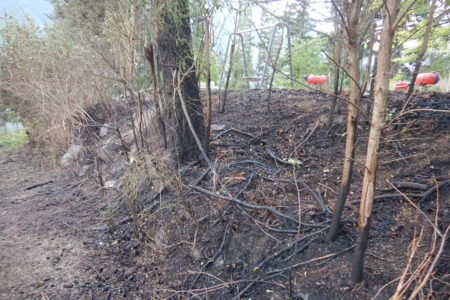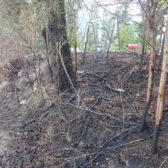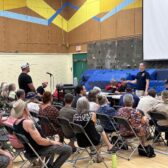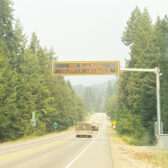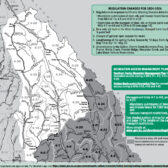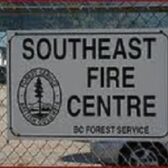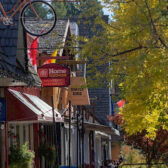Power play: Province pushes increase to density for residential lots
Do it or else.
The Province has delivered a directive to the City of Nelson to update its zoning to allow for increased densities on residential properties by June 30, or be subject to a ministerial order that overrides its zoning bylaw to permit a new required density of use.
In a regular City council meeting on March 5, council began the process of updating the zoning — ordered by Bill 44, adopted by the Provincial legislature in November 2023 — to allow for increased densities for the purpose of creating new “small-scale, multi-unit housing.”
For Nelson, the new density allowances will increase permitted density by one new unit per lot, meaning approximately 2,900 additional dwelling units could be allowed over and above today’s zoning in the Heritage city.
“Uptake is expected to be gradual, validated by the relatively low number of R1 properties that have built an additional dwelling since the R1 zone was amended in 2018 to permit up to three units,” said City director of Development Services and Climate Leadership, Sebastien Arcand.
Although the Provincial directive had been talked about a number of times in open council meetings, the current proposed amendment wasn’t really up for debate, said Mayor Janice Morrison.
“We can’t modify this. This is the Provincial government’s legislation, so we have to follow suit,” she said.
Arcand said there would likely not be a rush to build since allowable building size and building footprint will not be increased. If a property owner chooses to build four units on a lot, they will be required to fit those units into the same building envelope currently permitted for a single-detached home.
“The same setbacks, height and lot coverage restrictions apply,” he said. “The current minimum lot size for subdivision will also continue to apply, but if a large lot is subdivided, each of the new lots will be allowed up to four units.”
The Province is requiring all municipalities over 5,000 residents to adopt the prescribed residential densities by June 30, with the over-arching intent to increase housing supply.
Toward fulfilling the requirement, the City passed two readings of the Zoning Amendment Bylaw and three readings of the Off-Street Parking and Landscape Amendment Bylaw.
By the numbers
The proposed zoning amendment increases the permitted density in the R1, R3, R6 and CD6 zones to meet the new Provincial requirement:
- On lots less than or equal to 280 sq. m.: three dwellings will be allowed;
- On lots greater than 280 sq. m.: four dwelling units will be allowed; and
- The CD9 zone must also be amended to allow four units.
The Provincial legislation only requires changes to single-family and duplex zones, while manufactured home and medium-density zones do not need to be re-zoned.
The proposed amendment includes a clause that goes beyond the strict minimum, adding multi-unit residential as a use on any lot in the R1, R6, and CD6 zones. Currently, multi-unit residential — which includes row houses — is only permitted on R1 lots with a minimum size of 0.4 hectares (4,000 sq. m.).
“Staff are of the opinion that it is prudent to allow multi-unit in order to comply with this mandate because under the current list of permitted uses, the only form that a four-unit R1 development could take is that of a duplex with two secondary suites, or a duplex with one suite and a laneway house,” said Arcand. “Limiting all development to this one formula could be considered as ‘unreasonably’ restrictive. This change will ensure compliance with the intent of the legislation and will also contribute to greater range of possible designs and configurations.”
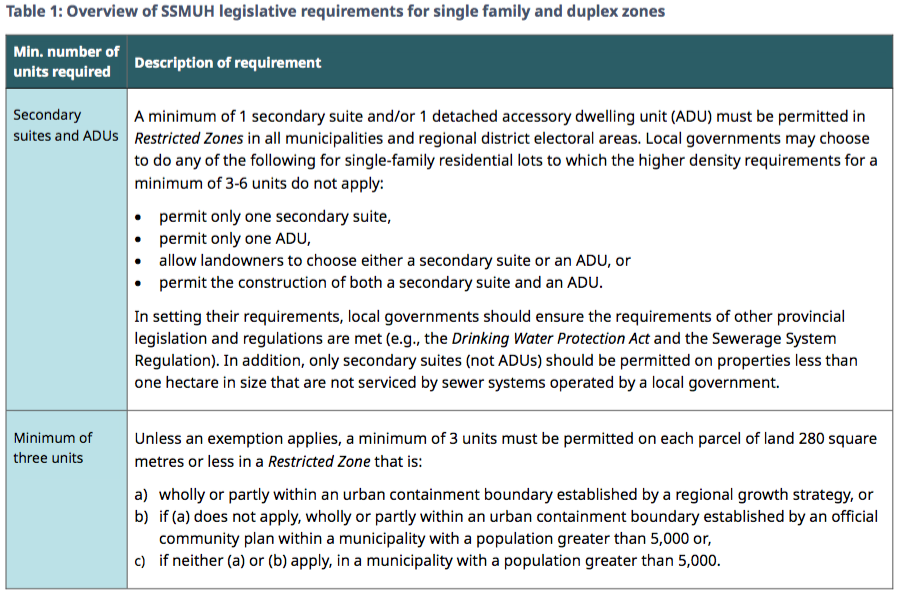
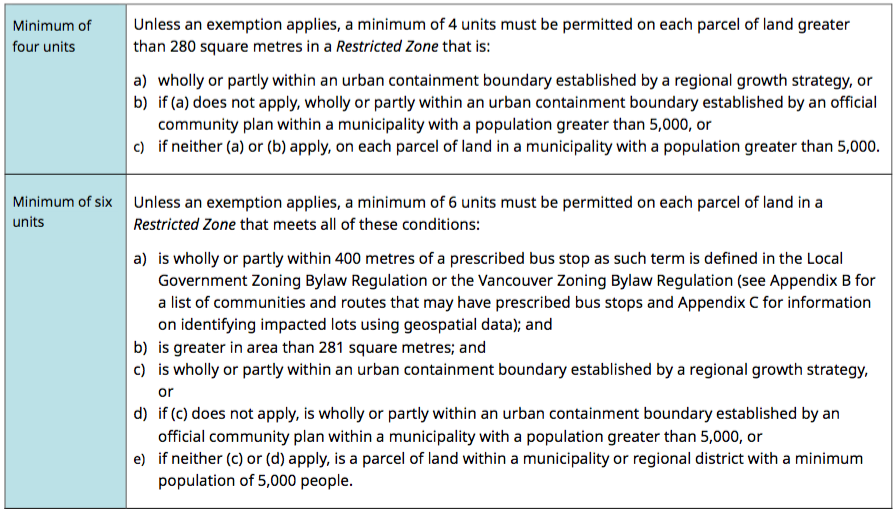
Taking it off-street
An amendment to the Off-Street Parking and Landscape Bylaw was proposed to even out residential parking requirements with a city-wide, one-stall-per-dwelling, requirement.
The Provincial legislation allows municipalities to not require more than one parking stall per dwelling — in order to comply with the intent of the new legislation — stating that “parking requirements often have the greatest influence on the viability of smaller multi-unit housing forms due to significant space requirements.”
The City’s Downtown Parking Strategy and Nelson Next recommend the elimination of parking requirements and instead employ a one-stall requirement.
According to ICBC data, the average Nelson household owns 1.19 vehicles, supporting the one-stall-per-dwelling requirement, a City staff report noted.
Power up
Also appearing on the horizon will be the need to accommodate residential charging for electric vehicles.
Currently, Nelson has no on-street electric vehicle charging options in residential areas.
“While a gas-powered vehicle can be always parked on-street, the owner of an electric vehicle must consider how to charge it and, at present, there is no reasonable alternative but to park off-street with one’s own charging station,” said Arcand. “It is therefore important to have a minimum level of off-street parking in order to not impose an unintended obstacle to electric vehicle adoption.”
B.C. intends on requiring that 100 per cent of new vehicles sold as of 2035 be electric.
Source: City of Nelson agenda, March 5






